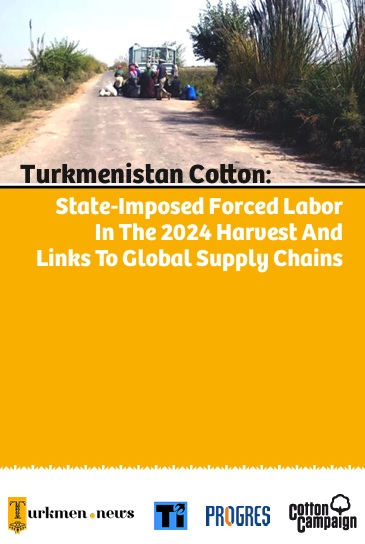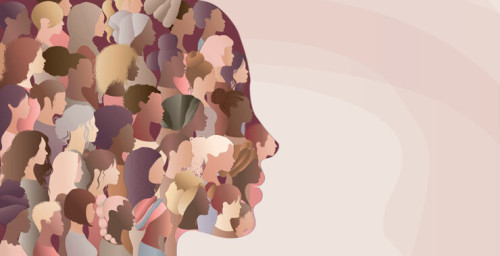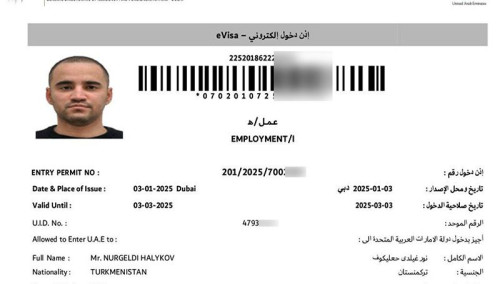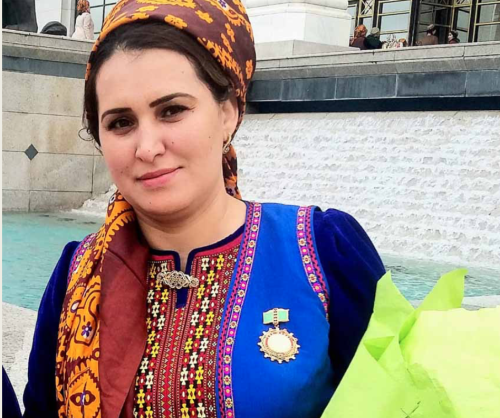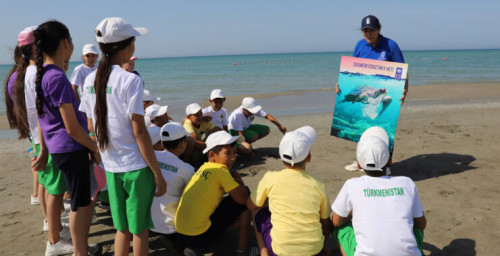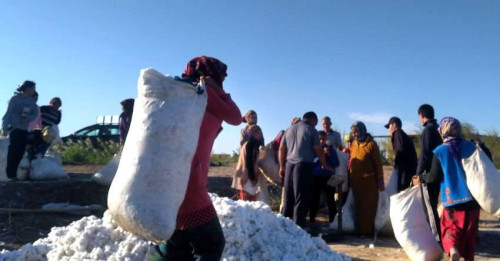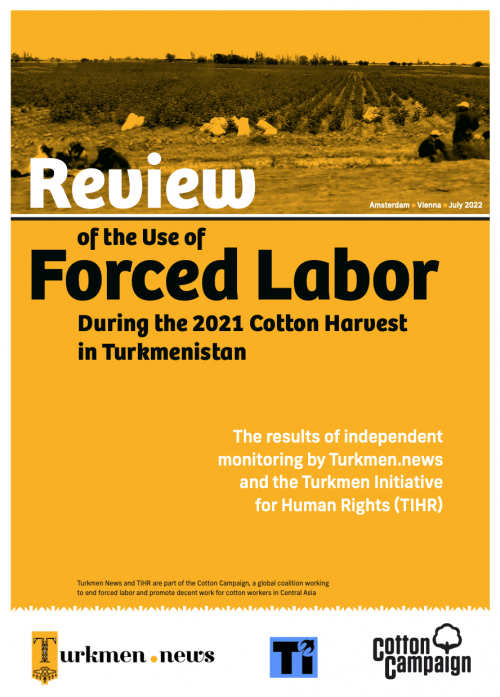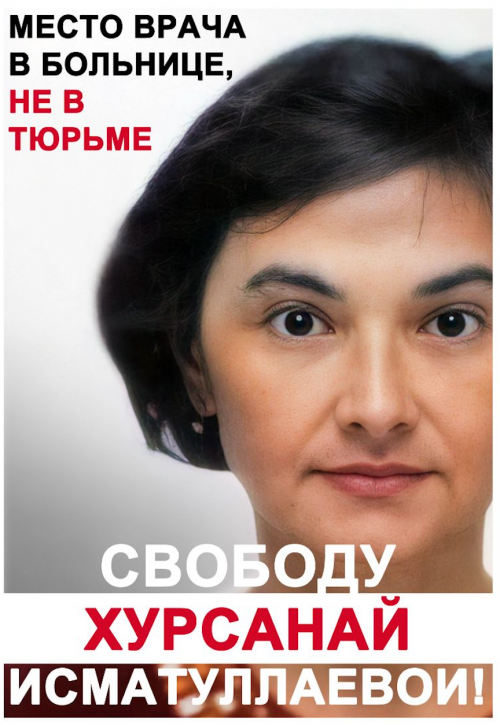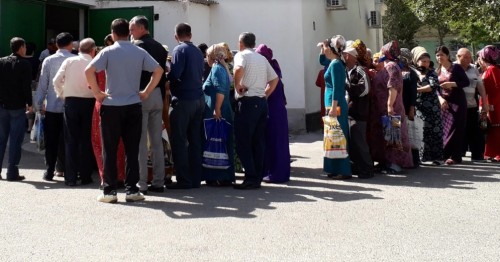Countries
Solidarity campaigns
13 August 2024
Georgia: Support striking workers at Evolution Gaming
5 June 2023
Georgia: Justice for Wolt couriers
10 May 2023
Belarus: Trade union activity is not extremism!
2 November 2019
Kazakhstan: Trade unionist Erlan Baltabay imprisoned - again!
19 November 2018
Kazakhstan: Stop repression and physical attacks on leaders of independent unions; hands off Larisa Kharkova, Erlan Baltabai and Dmitriy Senyavskiy
18 April 2018
MALOKHAT STILL NEEDS YOUR HELP
News
24 May, 2025 / turkmenistan
Turkmenistan Cotton: New Reporting Reveals Systemic Forced Labor, Despite Some Steps By Government To Reduce Mobilization
The government of Turkmenistan should expand the preliminary measures it took in the 2024 harvest to reduce forced labor through reforms that address root causes, empower workers and farmers, and allow independent monitoring and reporting, the Cotton Campaign said. The call comes as today the Cotton Campaign's frontline partners Turkmen.News and Turkmen Initiative for Human Rights released their findings of independent civil society monitoring of the 2024 cotton harvest in Turkmenistan.
19 February, 2025 / turkmenistan
Turkmenistan – CESCR – Gender Equality – February 2025
Unfortunately, gender inequality is widespread in Turkmenistan. Sexual and reproductive healthcare, specifically resources, data and information, are inadequate or lacking altogether. This is exacerbated by state-controlled media and its failure to disseminate scientific knowledge and evidence-based information. Sexual and reproductive health information is desperately needed for women to have an opportunity to reach their full potential, particularly to ensure health, economic security and legal protections.
15 January, 2025 / turkmenistan
Reporter Nurgeldi Halykov Banned From Leaving Turkmenistan
Turkmen.news correspondent Nurgeldi Halykov has been placed under a travel ban. On January 12, he was not allowed to board a flight to Dubai where he was travelling on a work visa. He was held for several hours at Ashgabat airport and interrogated in a separate office. In the end he was not permitted to cross the border.
03 September, 2024 / turkmenistan
Turkmenistan: Mother of Nine Fired from Children’s Home on False Accusations of Beating Her Charges
Gulistan Mammetgeldiyeva of Balkanabat in western Turkmenistan has been trying for two years to get her job back at the children’s home, where she worked for two decades. She was dismissed in reprisal for making a complaint about the director of the children’s home to the president, the education department and prosecutor’s office. In order to get rid of the unwelcome employee the director arranged an inspection of her work at 4.30 in the morning, filming her on his telephone as she had a rest. He must have considered this insufficient grounds for dismissal, so when she went on sick leave, he persuaded the children to say that Gulistan beat them. The woman has nine children of her own and has been awarded the honorary title Ene Mahri for raising a large family. The prosecutor’s office, courts, and local authorities are on the director’s side, and have offered Gulistan other work. She cannot return to her old job, as it has been sold to someone else.
23 April, 2024 / turkmenistan
Civil Society Inside and Outside Turkmenistan: Searching for Meaningful Engagement in the Interest of the Turkmen Public
Dominated by government-supported NGOs (GONGOs), Turkmenistan’s legal and political environment is antagonistic to the independent civic actors, who experience constant state-directed harassment, intimidation, and even persecution. In the meantime, the infrastructure supporting civil society is significantly underdeveloped. Such an environment forced a range of independent civic actors to leave the country, with some naturally emerging outside Turkmenistan, and playing a crucial role in informing the Turkmen public and the international community on the situation in Turkmenistan. However, these actors, too, face complex challenges, shaped by the state-directed intimidation and absence of international support and funding.
22 September, 2023 / turkmenistan
Teachers and Doctors in Turkmenistan Exempt from Cotton Picking – Could This Be Permanent?
Teachers and doctors in three regions of Turkmenistan have been freed from the obligation to go and pick cotton or pay money to hire workers in their stead. This may be connected with the upcoming visits to Turkmenistan of a monitoring mission of the International Labor Organization (ILO) and representatives of the U.S. Department of Labor. It is to be hoped that the exemption of this category of public sector workers from cotton picking is not a temporary measure because of the important visitors, but the first step on the road towards eradicating forced labor in Turkmenistan.
12 June, 2023 / turkmenistan
New Independent Reporting Reveals Ongoing Systematic Forced Labor and Corruption in Turkmenistan Cotton Harvest
ILO to Review Turkmenistan for Compliance with International Law Prohibiting Forced Labor
19 July, 2022 / turkmenistan
Turkmenistan: Systematic Forced Labor in the 2021 Cotton Harvest
European governments and the United States should take urgent measures to block cotton products made with forced labor in Turkmenistan from their markets and hold to account companies that profit from forced labor in Turkmenistan, the Cotton Campaign said. The Cotton Campaign, a global coalition against forced labor in cotton production in Central Asia, today released a new report exposing state-imposed forced labor, including child labor, during the 2021 cotton harvest in Turkmenistan, researched and written by two leading Turkmen human rights groups. The report also reveals trade flows through which forced labor Turkmen cotton enters global markets, including the U.S., despite an existing ban on cotton imports from Turkmenistan.
16 July, 2022 / turkmenistan
Statement by Members of The European Parliament, Human Rights Defenders and Independent Journalists
“July 16 marks the first anniversary of the arrest of Dr Hursanay Ismatullaeva from Turkmenistan. She is serving a nine-year prison term for criminal charges that were clearly in retaliation for her labour dispute becoming a topic for discussion at a European Parliament event.
30 November, 2021 / turkmenistan
Turkmenistan To Make It More Difficult For People To Get Subsidized Food
Turkmenistan has increasingly limited its citizens' access to state-owned grocery shops that offer essential foodstuffs at subsidized prices, up to 10 times cheaper than in private stores.The latest move is expected to negatively affect millions of people in the energy-rich yet impoverished country. The number of Turkmen migrant workers abroad is thought to be around 1 million, most of them working in Turkey.

